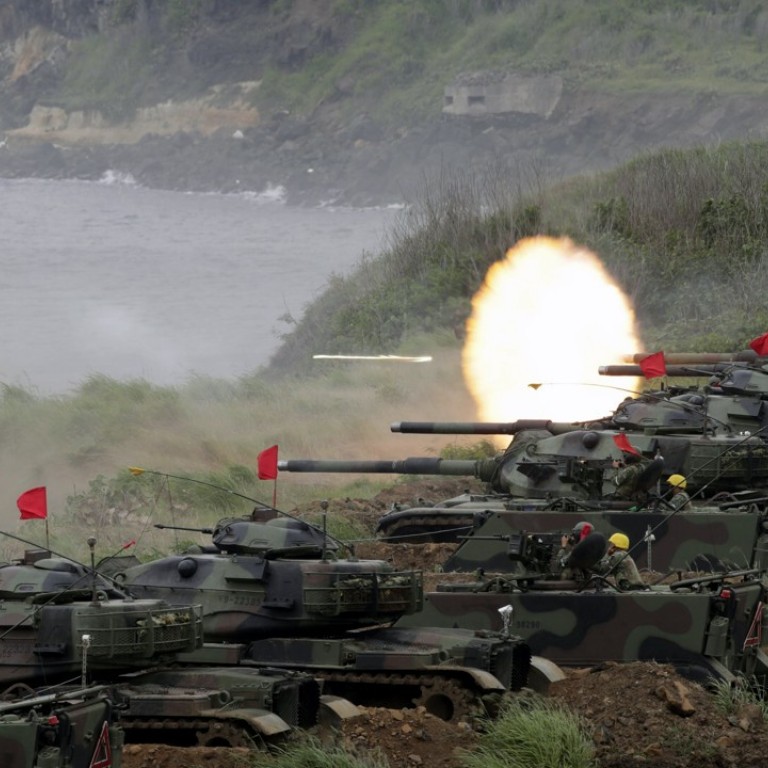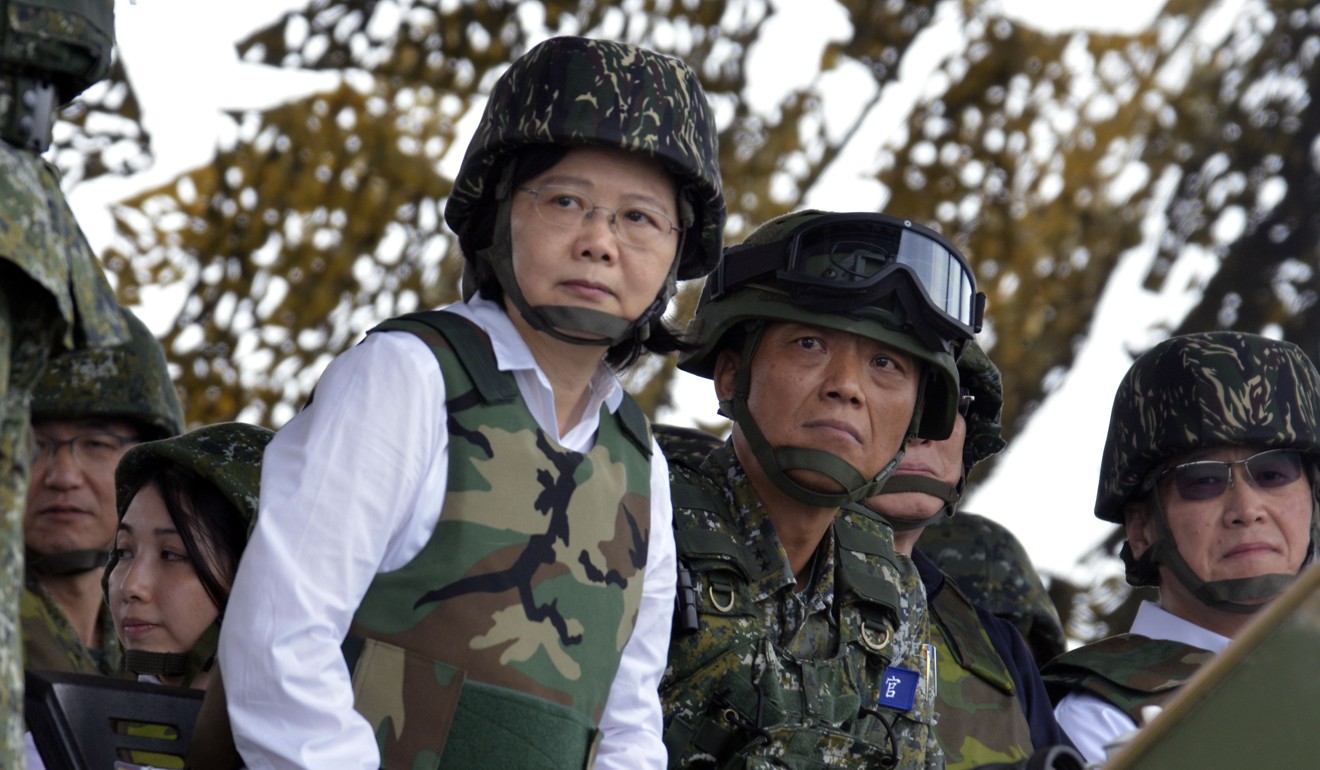
Tsai Ing-wen vows to boost Taiwan defence budget amid military threats
President says island must be prepared as tensions escalate in the region
Taiwanese President Tsai Ing-wen on Friday said the defence budget would increase every year so that the island can develop its own weapons and buy more arms from the US, as regional tensions continue to escalate.
Tsai made the comments during a year-end press conference held for the first time at Taiwan’s weapons research and development facility, the Chungshan Institute of Science and Technology.
“In the year to come, we will maintain steady growth of our defence budget at a reasonable level,” Tsai said, adding that weapons development was a pressing task for the island.
“Building our own defences will no longer be a slogan, but the daily task we must fully realise.”
She said Taiwan had to be prepared, given the mainland military’s rapid expansion and frequent activities within and outside the Taiwan Strait, along with mounting tensions on the Korean peninsula and maritime disputes in the East and South China seas.
“This is why I have time and again emphasised the importance of developing our indigenous defence in order to safeguard our sovereignty, maintain regional peace, stability and prosperity,” Tsai said.

Taiwan would also seek to buy more advanced arms from the United States, Tsai said, and the government had been reviewing its acquisition list for negotiation with Washington. She did not reveal which weapons the island wanted to buy.
But the president also offered reassurance that her government would not do anything that might provoke Beijing or lead to a worsening in cross-strait ties.
Relations between Taipei and Beijing have been tense since Tsai, of the independence-leaning Democratic Progressive Party, became president last year. Beijing suspended official exchanges and talks with Taipei after Tsai refused to accept the “1992 consensus” – an understanding on which cross-strait ties have long been based that there is only one China, but each side can have its own interpretation of what that China stands for.
In recent months, Beijing has stepped up military threats, including sending fighters and warships to areas near the Taiwan Strait to try to intimidate the Tsai government into accepting the consensus.
Tsai on Friday said her government would avoid agitating Beijing and would continue to seek the peaceful development of cross-strait relations. She also said she believed that at present “military attack against Taiwan is not a policy of the mainland leader” Xi Jinping, given that it would involve not just the Taiwan Strait but the entire region.
She said her government had been closely watching the recent military activities of the People’s Liberation Army.

